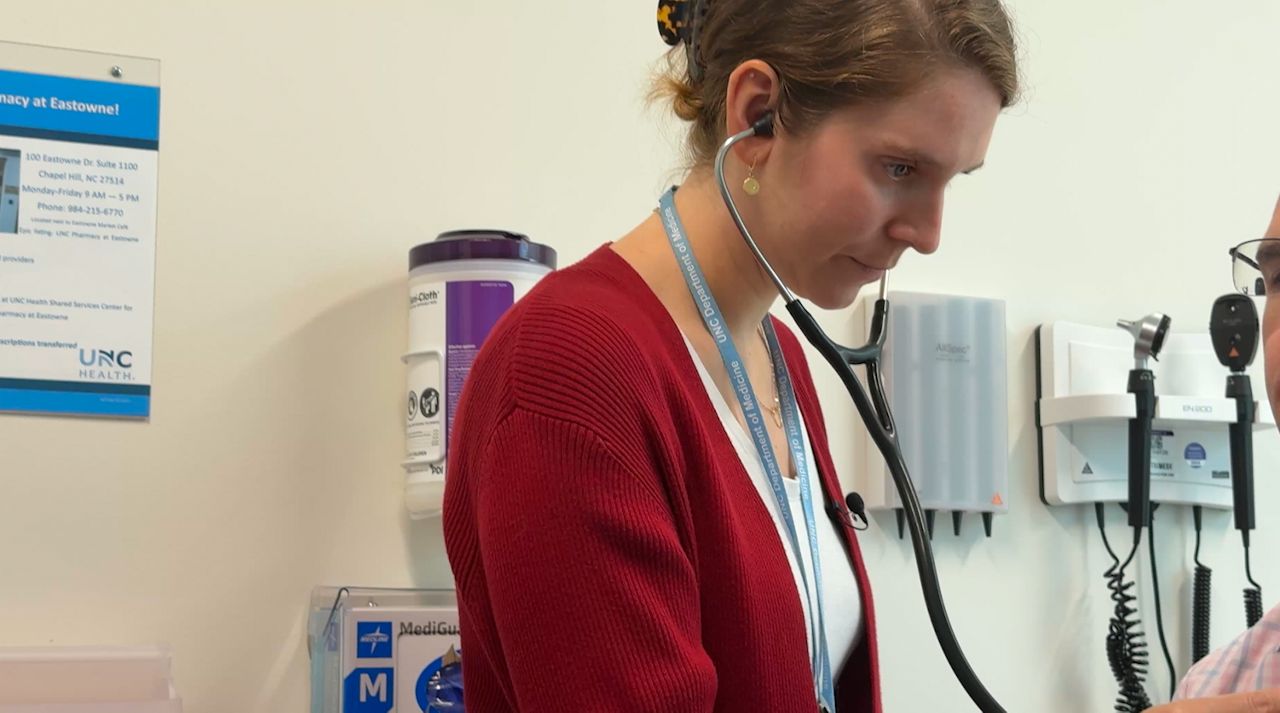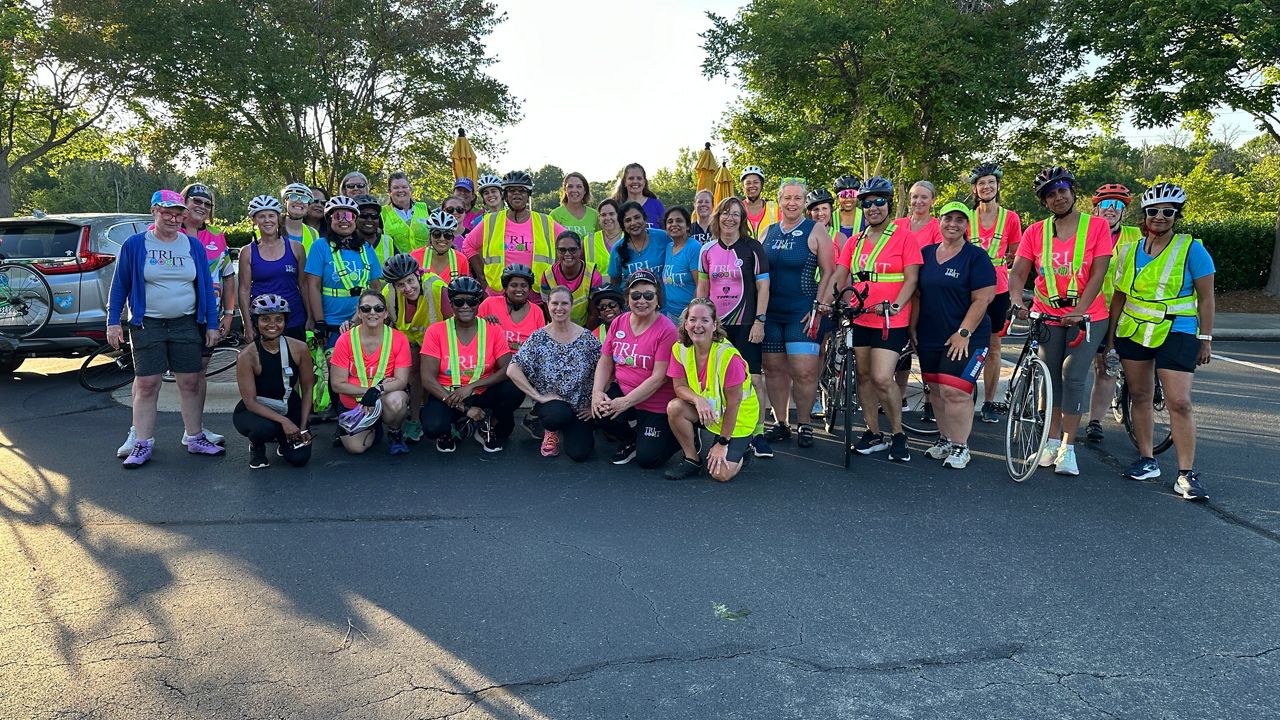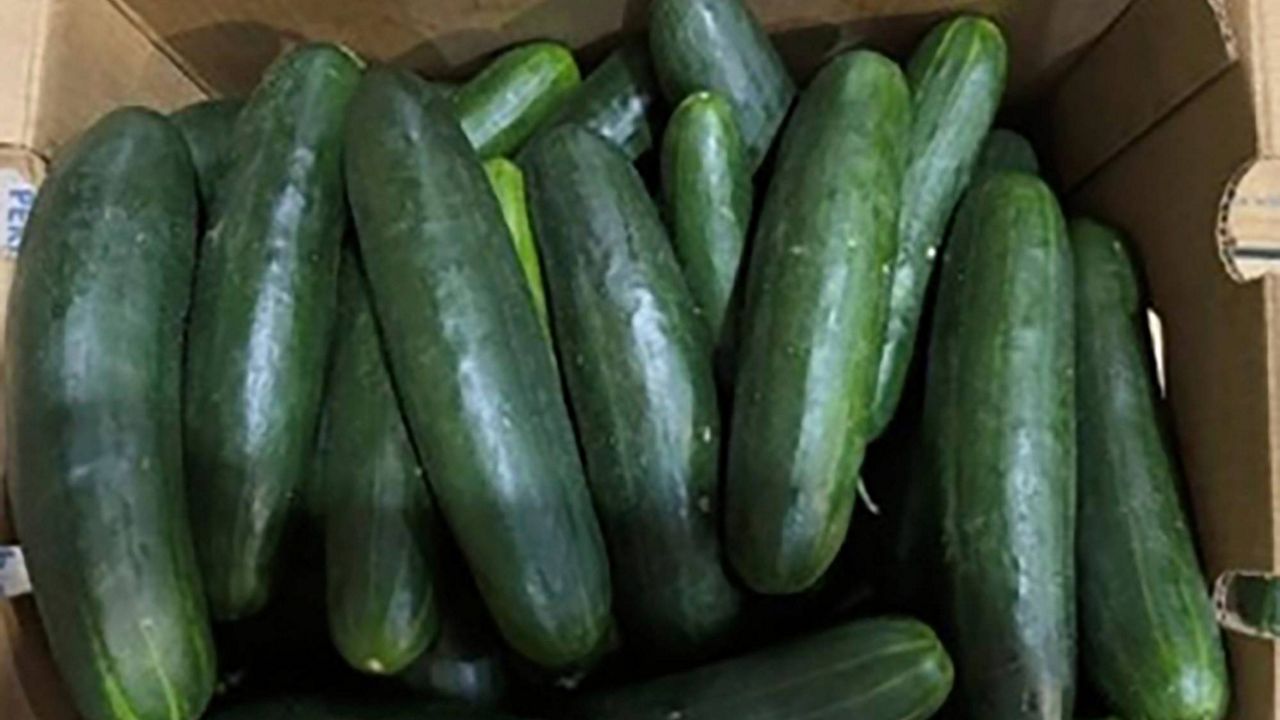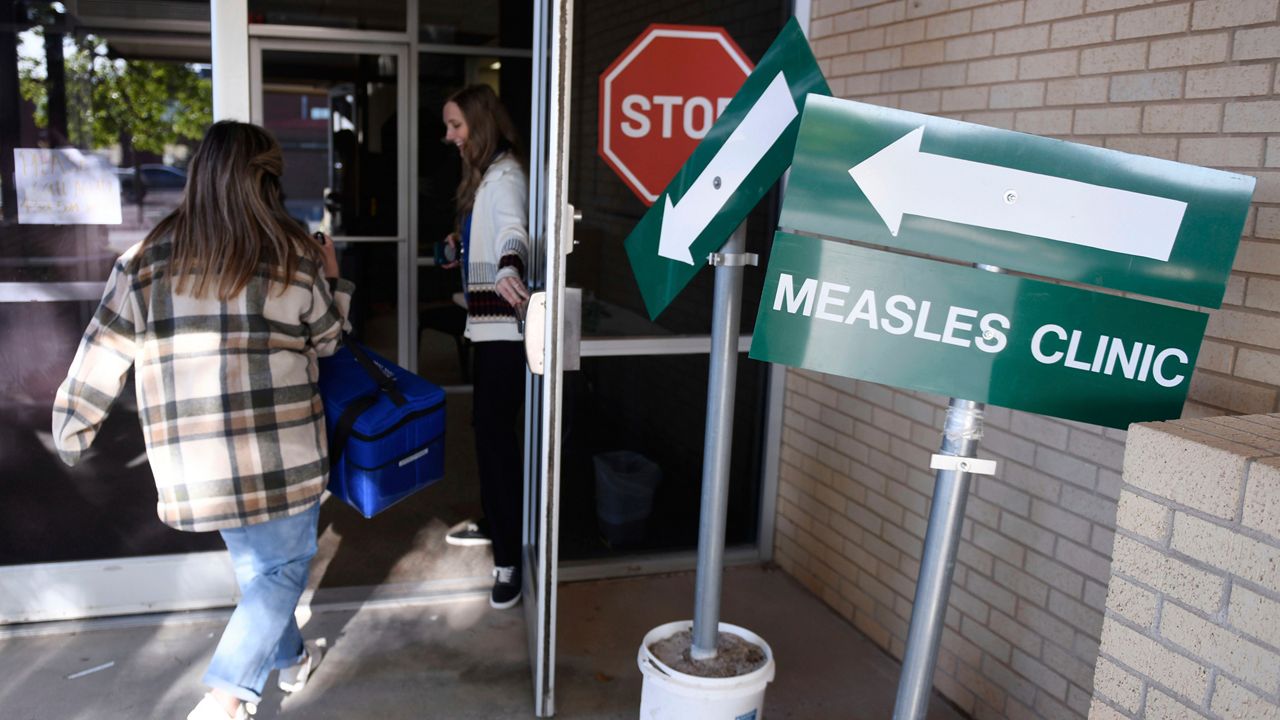RALEIGH, N.C. — The North Carolina State Senate Committee on Judiciary met to discuss a bill regulating hemp Wednesday afternoon with a potential for a new law by the end of the month.
If the Regulate Hemp-Derived Consumables & Kratom bill becomes law, it gives the Department of Revenue the latitude to accept applications, approve licenses for prospective hemp businesses and to post on its website a registry of testing laboratories for the manufacture and sale of hemp goods.
As policymakers meet to decide its fate, hemp continues filling a demand in North Carolina for a product that is neither offered by traditional medicine nor found on most store shelves throughout the state. In a true embrace of a free market economy, the hemp industry is flourishing without hard legally defined lines. No state-designated agency follows how CBD and hemp products are sold since a hemp pilot program expired in 2021.
Some of the controversial crop’s greatest advocates find themselves as stakeholders in a retail market as untamed and new as the western frontier was for the settlers of old looking for prosperity.
“I’m a recovered addict, and I’ve seen cannabis help so many people in so many different ways,” Austin Bain said.
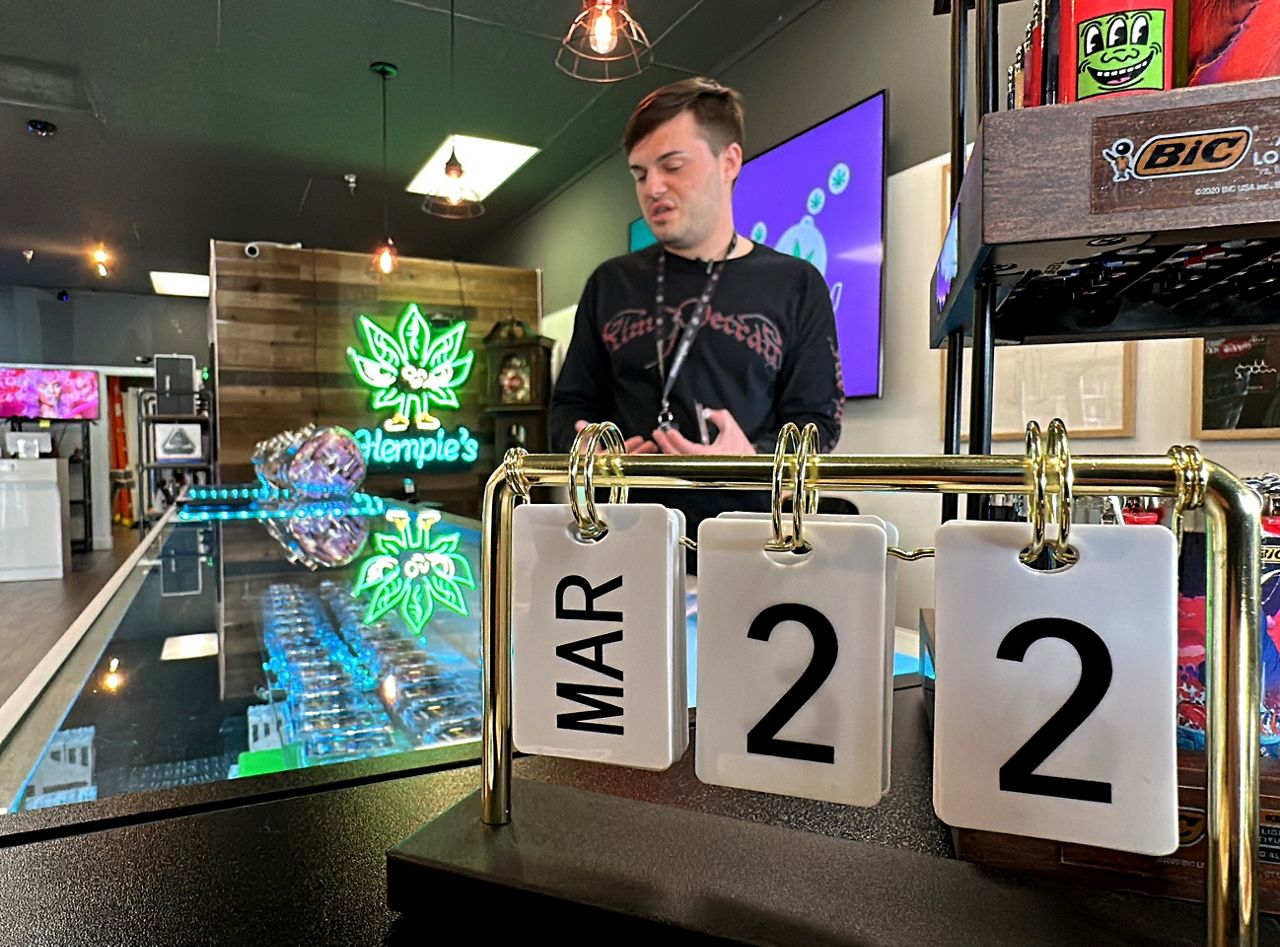
Bain credits legal cannabis for kicking opioids and heroin to the curb for good.
“Just being able to take one hit off a vape. It changed everything," he said.
Bain is the co-owner of a company called Hempie’s. In 2023, one of the Raleigh-based retailer and manufacturer's five stores produced a million and a half dollars in sales.
“It really sells itself if we are going to talk about it from a business standpoint. It sells itself,” Bain said.
The state gets its cut, too, by taxing hemp sales at 4.75%.
Cannabis has been a financial and physical life-saver for the North Carolina native. The long, arduous fight for sobriety affected Bain in his early 20s. He said his dependency ate away at his quality of life.
“It’s hard to break that psychological thing when you know that, that’s the one thing that is truly going to get rid of every single symptom that your body is experiencing,” Bain said.
He said he tried to quit opioids using drug rehabilitation, except the 28-year-old said he could not stand how suboxone, a medication taken to reduce the physiological aching tied to withdrawals, made him feel.
“A medication that is prescribed to you by doctors telling you this will make you better if you’re addicted,” he said. After finishing suboxone treatment he said all of his money went to buying heroin because it made his body feel better.
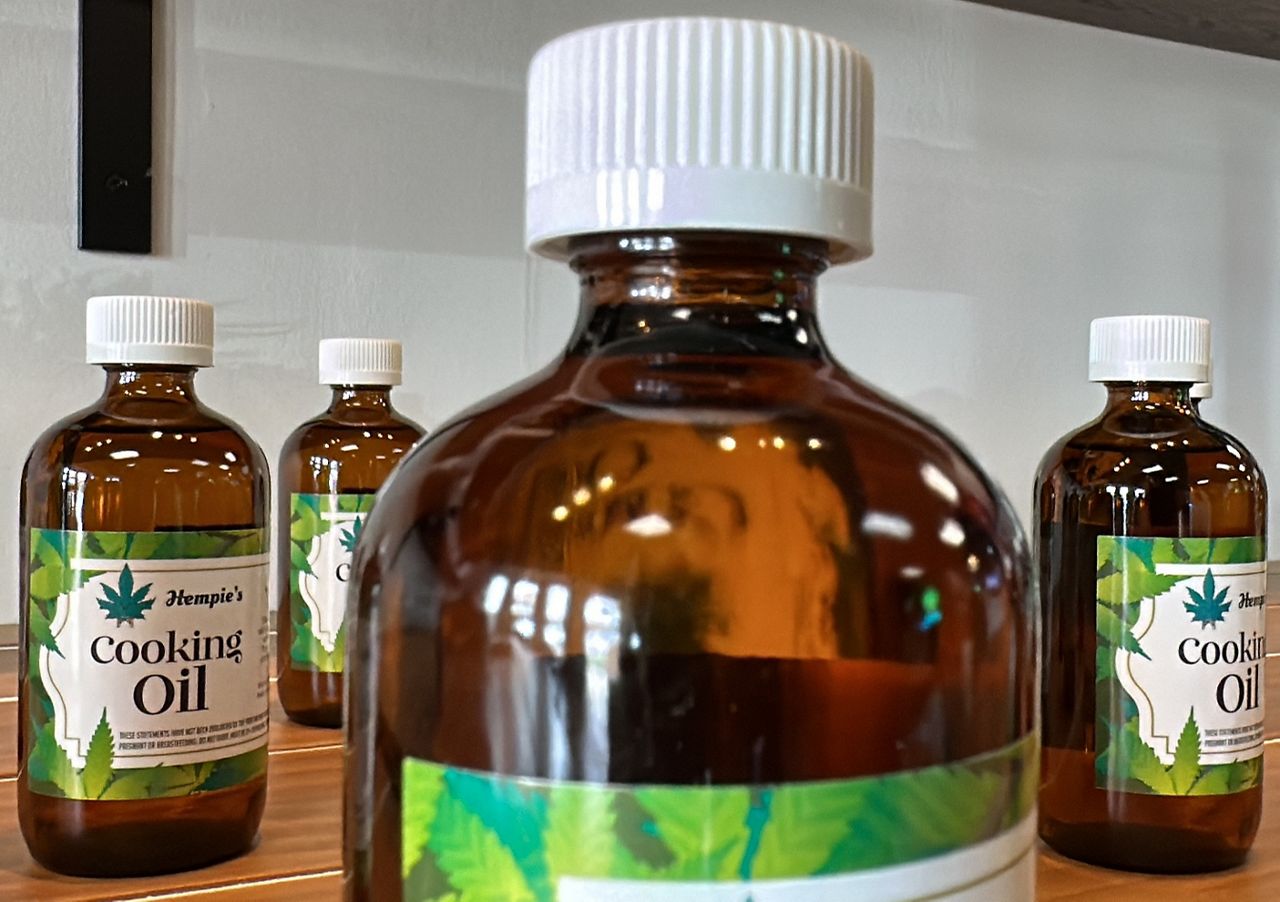
“I am not going to lie but at the end of the day, the way that my body needed (opioids) when I did not want them was the problem. The way that my body was literally rejecting food. I was cold, but I was sweating at the same. I couldn’t sleep. Now I have permanent restless leg syndrome because of my addictions,” Bain said.
Bain doesn’t do this work alone. Matthew Beasley and Todd Floyd are his business partners who he said have given him a loving and strong support system.
“If it was not for my partners Todd and Matthew, I probably would not be alive,” Bain said.
He estimates his true addiction started in 2015 and lasted through 2020 when he ended treatment.
“While you are in those programs they don’t allow you to use cannabis. They drug test you and all that stuff. That door wasn’t even open for me for years,” he said.
That is a version of himself Bain prefers to leave in the rearview mirror. The present is headed in a much different direction.
Hempie’s not only offers hemp-derived goods in-store, employees will deliver if a customer purchases an order online and requests at-home delivery.
“Look at it now. We have a business. We have five stores. We have our own delivery fleet,” Bain said.
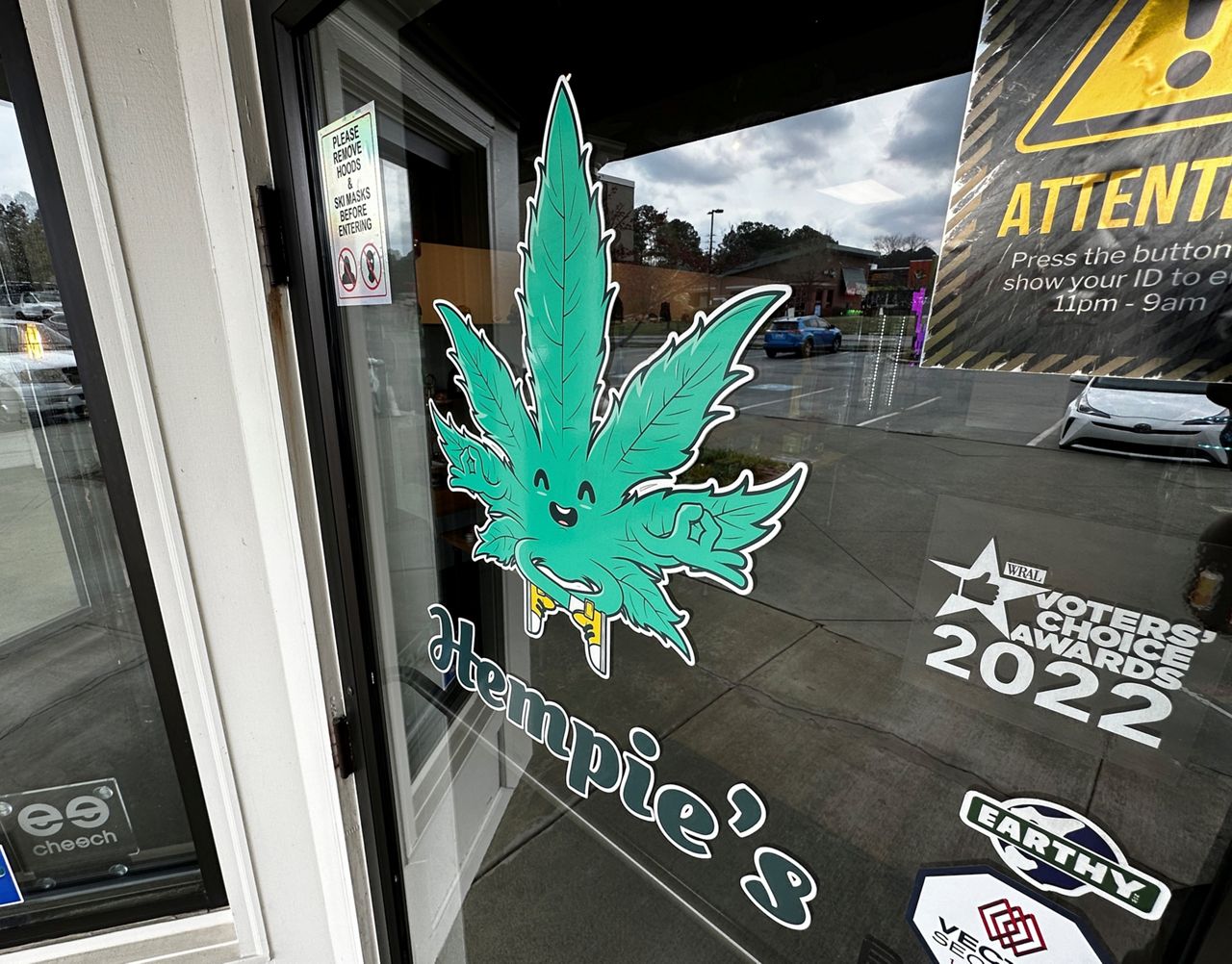
Driving into unknown territory is nothing new for Bain, who’s pressed the gas on this journey over the last few years.
The company makes home dropoffs available to anyone within a 30-mile radius of their five stores in and around the Triangle.
"If you want to be a Hempie’s customer and you don’t want to leave your house, you can wait, as long as you can handle same-day delivery,” Bain said.
The only requirement is for the customer to provide identification upon receipt of the package. Bain captures an image of a customer’s license using an app on his phone. He said this practice avoids disputes while being upfront about their standards.
Bain and his cohorts are not alone in seizing the moment. There’s a mad dash to make some cash in the hemp industry as more and more businesses continue raking in sale after sale. The N.C. Department of Agriculture reported nearly 1,450 hemp processors, another word for retailers, on the voluntary state hemp registry.
No one who sells CBD and hemp answers to any higher power from the state because by law there’s no official state regulatory body. This has left Bain and his business partners to forge their path to legitimacy.
Multiple hemp retailers said people want more non-addictive options for pain treatment. This comes at a time when the effects of the opioid crisis are felt in communities across the state. The passage of the 2018 Farm Bill may be largely to credit for the statewide boom. Former President Donald Trump’s signature of the bill officially removed hemp from the Schedule 1 Controlled Substances list.
“I know what these cannabinoids can do, and I’ve seen miracles literally happen in front of my eyes,” Bain said.
Labeling with clear language is also necessary to meet state and federal guidelines. The Food and Drug Administration mandates that medical claims cannot be placed anywhere on the packaging because the ingredients have not been evaluated.
Bain acknowledges that. He recommends certain items based on what the customer wants and any physical pain described by them. The hemp store owner said he won’t suggest a product if he has not tried or tasted it for himself.
“That’s our biggest thing is we want you to understand the product you are putting in your body,” Bain said.
No matter how noble the intent, Dr. Allyn Howlett said there are natural issues born out of a lack of quality control and a business market without guardrails for product testing.
“At this point, it's folklore, it's folklore medicine,” Howlett said.“At this point, it's folklore, it's folklore medicine,” Howlett said.
Howlett is a biochemical neuropharmacologist at the Wake Forest University School of Medicine who discovered CB1, a cannabinoid receptor policing neurotransmitter activity in the brain, during the late 1980s. It led her to study how cannabis works in the brain. She said without a regulatory process for hemp, the issue is clear.
“I think that the companies that think they're going to make millions of dollars need to put hundreds of thousands of dollars into the appropriate testing,” she said.
Under the proposal, the bill could also make companies test their products before hitting store shelves.
The chosen method of testing for product purity will be through high-performance chromatography testing, which can identify illegal elements.
Howlett pointed out a reason there are baselines for testing products by the FDA.
“The problem is that it's very different from drugs and medicines that have been released under the Food and Drug Administration evaluations because for those the pharmaceutical company has had to report to these agencies virtually everything about those drugs,” Howlett said.
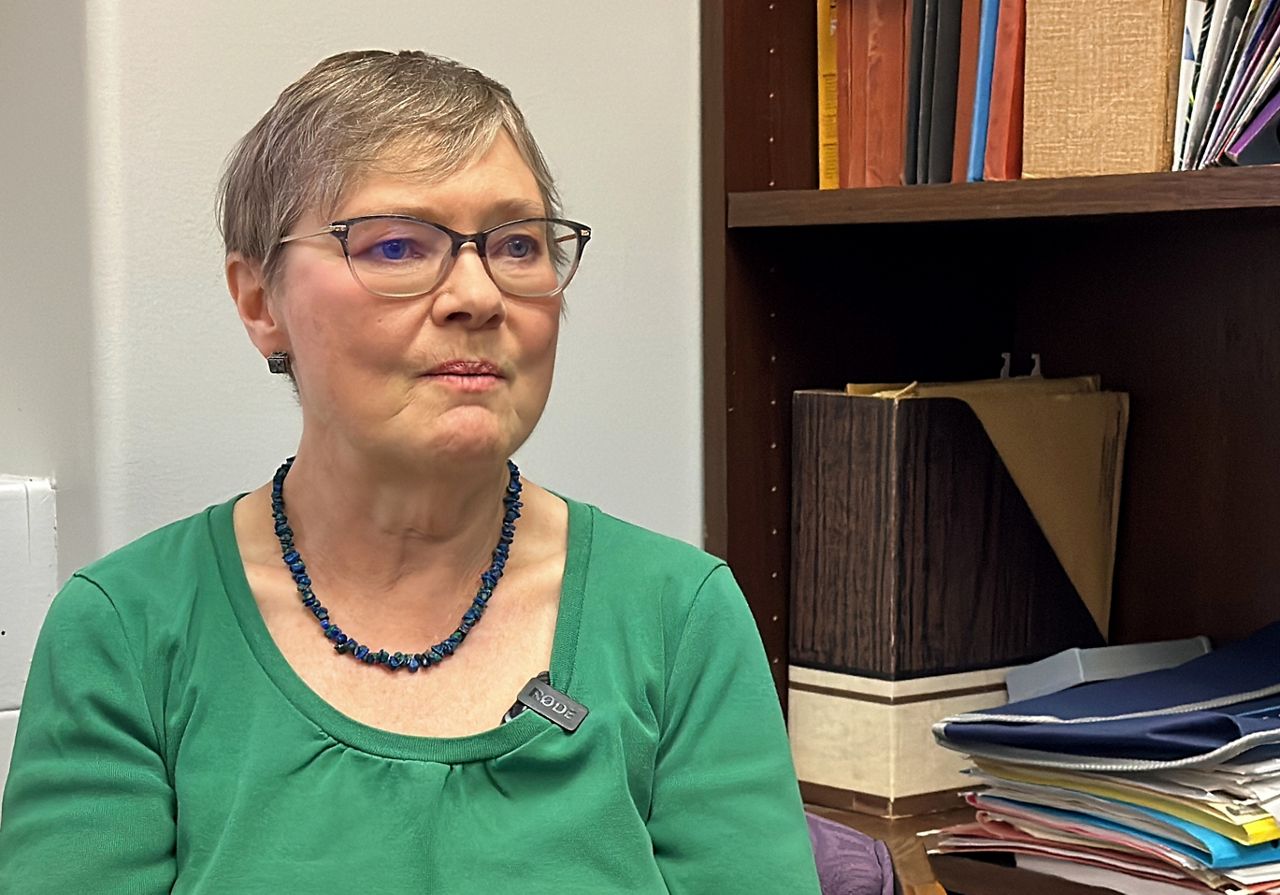
But hemp retailers don’t have to in this state. “Well, that's, I think, our conundrum right now,” Howlett said.
Howlett said if the products hemp retailers are selling aren’t forced to go under the microscope from the FDA before hitting store shelves, then there are things we won't know about, including what we are putting in our bodies.
“I think in our culture, people are seeking things for medicinal purposes, and particularly pain relief for chronic pain that isn't currently being addressed,” Howlett said.
Cannabis has been a healthier alternative for Bain, who acknowledges he cannot give medical advice: only his preferences, lived experience and anecdotes from other shoppers. He said having open and honest conversations with customers is a great starting point.
“It became building a relationship with the community, to be honest,” Bain said.
For more than a year, state lawmakers have considered a proposal to regulate hemp.
The “Regulate Hemp-Derived Consumables & Kratom” bill passed the House last year.
The proposal aims to provide clear guidelines for the sale, manufacture and distribution of hemp.
It could more clearly establish law enforcement strategies to handle illegal products, designate state-run agencies and govern the industry. If passed, the bill would take effect July 1, but the legislative short session is set to end by the end of the same month.
Present-day laws stipulate all hemp-derived products be equal to or less than 0.3% THC. THC, tetrahydrocannabinol, is the psychoactive part of the drug.
Multiple state agencies and nongovernmental organizations were contacted for this report to ask whether they track hemp sales and revenue for in-state retailers. So far, none could provide data tracing hemp from seed to sale and the number of products being sold from out of state.
During the industrial hemp pilot program in 2017-21, more than 1,600 growers were licensed on the state registry.
“All of this stuff, even though you’re getting a Delta 9 edible, you’re getting a Delta 9 chocolate, drink, what have you, it is still under the federal and state legal limit,” Bain said.
Three hundred milligrams of Delta 9 THC is no small amount. No product on store shelves, such as an edible, may contain THC levels higher than 0.3%.
The state is faced with ensuring products sold meet the legal threshold. But what would happen if the gummies weren’t in the legal limit? The answer right now is effectively nothing.
Whether you’re in the mood for syrups, topicals, raw hemp flowers, gummies or other goods, all are required by law to have transparent labeling for compliance.
“We want to have products that allow you to dip your toe in, rather than dive all the way in head first. We don’t want that,” he said.
The bill would give the N.C. Alcohol Law Enforcement Division power to enforce compliance with the law governing retail and distribution of hemp products.






